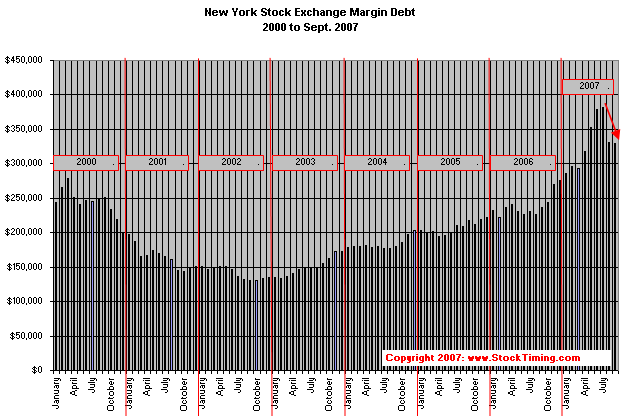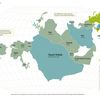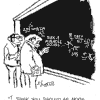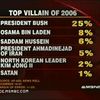19.11.2007 | 18:38
NY Stock Exchange Contracting Margin Debt Levels Sending Bearish Message
Um bloggiš
Baldur Fjölnisson
Nżjustu fęrslur
- Torfi Stefįns bannašur ęvilangt
- OL ķ skįk. Landinn malaši Kenķu ķ 9. umferš
- OL ķ skįk: Landinn ķ 88. sęti eftir 8 umferšir
- Mešaljónar ķ skįkinni
- Baggalśtur - Sagan af Jesśsi
- Eitraš fyrir lżšnum?
- Óvenjulega döpur taflmennska innfęddra einkennir Reyjavķkursk...
- U.S. Rushes Coolant to Japanese Nuke Plant After Earthquake
Heimsóknir
Flettingar
- Ķ dag (17.9.): 3
- Sl. sólarhring: 3
- Sl. viku: 10
- Frį upphafi: 116502
Annaš
- Innlit ķ dag: 2
- Innlit sl. viku: 8
- Gestir ķ dag: 2
- IP-tölur ķ dag: 2
Uppfęrt į 3 mķn. fresti.
Skżringar
Bloggvinir
-
 Agný
Agný
-
 Alfreð Símonarson
Alfreð Símonarson
-
 Andrea J. Ólafsdóttir
Andrea J. Ólafsdóttir
-
 Bjarni Harðarson
Bjarni Harðarson
-
 Bjarni Kjartansson
Bjarni Kjartansson
-
 Björgvin Gunnarsson
Björgvin Gunnarsson
-
 Brynjar Jóhannsson
Brynjar Jóhannsson
-
 FLÓTTAMAÐURINN
FLÓTTAMAÐURINN
-
 Eygló Þóra Harðardóttir
Eygló Þóra Harðardóttir
-
 FreedomFries
FreedomFries
-
 Fríða Eyland
Fríða Eyland
-
 Félag um stafrænt frelsi á Íslandi
Félag um stafrænt frelsi á Íslandi
-
 Georg P Sveinbjörnsson
Georg P Sveinbjörnsson
-
 Gestur Guðjónsson
Gestur Guðjónsson
-
 Gils N. Eggerz
Gils N. Eggerz
-
 Gullvagninn
Gullvagninn
-
 Gunnar Skúli Ármannsson
Gunnar Skúli Ármannsson
-
 Guðrún María Óskarsdóttir.
Guðrún María Óskarsdóttir.
-
 Gísli Hjálmar
Gísli Hjálmar
-
 Hagbarður
Hagbarður
-
 Halla Rut
Halla Rut
-
 Haraldur Haraldsson
Haraldur Haraldsson
-
 Hilmar Kári Hallbjörnsson
Hilmar Kári Hallbjörnsson
-
 Hlekkur
Hlekkur
-
 Ingibjörg Álfrós Björnsdóttir
Ingibjörg Álfrós Björnsdóttir
-
 Jens Guð
Jens Guð
-
 Jóhannes Ragnarsson
Jóhannes Ragnarsson
-
 Jón Aðalsteinn Jónsson
Jón Aðalsteinn Jónsson
-
 Jón Ragnarsson
Jón Ragnarsson
-
 Jón Steinar Ragnarsson
Jón Steinar Ragnarsson
-
 Jónína Benediktsdóttir
Jónína Benediktsdóttir
-
 Karl Tómasson
Karl Tómasson
-
 Kári Magnússon
Kári Magnússon
-
 Loopman
Loopman
-
 Magnús Þór Hafsteinsson
Magnús Þór Hafsteinsson
-
 Promotor Fidei
Promotor Fidei
-
 Rúnar Sveinbjörnsson
Rúnar Sveinbjörnsson
-
 Salvör Kristjana Gissurardóttir
Salvör Kristjana Gissurardóttir
-
 Sandra María Sigurðardóttir
Sandra María Sigurðardóttir
-
 SeeingRed
SeeingRed
-
 Sigurbjörn Friðriksson
Sigurbjörn Friðriksson
-
 Sigurjón Þórðarson
Sigurjón Þórðarson
-
 Sigurður Þórðarson
Sigurður Þórðarson
-
 Snorri Hrafn Guðmundsson
Snorri Hrafn Guðmundsson
-
 el-Toro
el-Toro
-
 Sveinn Ingi Lýðsson
Sveinn Ingi Lýðsson
-
 Tryggvi Hjaltason
Tryggvi Hjaltason
-
 TómasHa
TómasHa
-
 Túrilla
Túrilla
-
 Upprétti Apinn
Upprétti Apinn
-
 gudni.is
gudni.is
-
 haraldurhar
haraldurhar
-
 proletariat
proletariat
-
 Ívar Pálsson
Ívar Pálsson
-
 Ómar Ragnarsson
Ómar Ragnarsson
-
 Ónefnd
Ónefnd
-
 Óskar
Óskar
-
 Óskar Helgi Helgason
Óskar Helgi Helgason
-
 Óskar Þ. G. Eiríksson
Óskar Þ. G. Eiríksson
-
 Þórir Kjartansson
Þórir Kjartansson
-
 Arnar Guðmundsson
Arnar Guðmundsson
-
 Bara Steini
Bara Steini
-
 Birgir R.
Birgir R.
-
 Birgir Rúnar Sæmundsson
Birgir Rúnar Sæmundsson
-
 brahim
brahim
-
 Brosveitan - Pétur Reynisson
Brosveitan - Pétur Reynisson
-
 Bwahahaha...
Bwahahaha...
-
 Dingli
Dingli
-
 eysi
eysi
-
 Gestur Kristmundsson
Gestur Kristmundsson
-
 Guðbjörg Elín Heiðarsdóttir
Guðbjörg Elín Heiðarsdóttir
-
 Gunnar Helgi Eysteinsson
Gunnar Helgi Eysteinsson
-
 Gunnar Rögnvaldsson
Gunnar Rögnvaldsson
-
 Helgi Jóhann Hauksson
Helgi Jóhann Hauksson
-
 Hlini Melsteð Jóngeirsson
Hlini Melsteð Jóngeirsson
-
 Jakobína Ingunn Ólafsdóttir
Jakobína Ingunn Ólafsdóttir
-
 Katrín Snæhólm Baldursdóttir
Katrín Snæhólm Baldursdóttir
-
 kreppukallinn
kreppukallinn
-
 Kristín Magdalena Ágústsdóttir
Kristín Magdalena Ágústsdóttir
-
 Máni Ragnar Svansson
Máni Ragnar Svansson
-
 Morgunblaðið
Morgunblaðið
-
 Neo
Neo
-
 Orgar
Orgar
-
 Ragnar L Benediktsson
Ragnar L Benediktsson
-
 Rauði Oktober
Rauði Oktober
-
 Skákfélagið Goðinn
Skákfélagið Goðinn
-
 Sveinn Þór Hrafnsson
Sveinn Þór Hrafnsson
-
 Vilhjálmur Árnason
Vilhjálmur Árnason
-
 Þór Ludwig Stiefel TORA
Þór Ludwig Stiefel TORA





Athugasemdir
OPEC Interested in Non-Dollar Currency
 Email this Story
Email this Story
http://apnews.myway.com/article/20071118/D8T0BC8O0.htmlNov 18, 4:58 PM (ET)
By SEBASTIAN ABBOT
Full Image
Google sponsored linksThe Truth Behind OPEC Oil - The Last Domino Is About To Fall. New Oil Forecast & Investor Report.
www.EnergyAndCapital.com/Pea
Worried About Oil Prices? - Learn How Colorado is Sitting on More Oil Than the Middle East
www.DailyWealth.com/Oil_Repo
RIYADH, Saudi Arabia (AP) - Iranian President Mahmoud Ahmadinejad said Sunday that OPEC's members have expressed interest in converting their cash reserves into a currency other than the depreciating U.S. dollar, which he called a "worthless piece of paper."
His comments at the end of a rare summit of OPEC heads of state exposed fissures within the 13-member cartel - especially after U.S. ally Saudi Arabia was reluctant to mention concerns about the falling dollar in the summit's final declaration.
The hardline Iranian leader's comments also highlighted the growing challenge that Saudi Arabia, the world's largest oil producer, faces from Iran and its ally Venezuela within the Organization of Petroleum Exporting Countries.
"They get our oil and give us a worthless piece of paper," Ahmadinejad told reporters after the close of the summit in the Saudi capital of Riyadh. He blamed U.S. President George W. Bush's policies for the decline of the dollar and its negative effect on other countries.
Full ImageOil is priced in U.S. dollars on the world market, and the currency's depreciation has concerned oil producers because it has contributed to rising crude prices and has eroded the value of their dollar reserves.
"All participating leaders showed an interest in changing their hard currency reserves to a credible hard currency," Ahmadinejad said. "Some said producing countries should designate a single hard currency aside from the U.S. dollar ... to form the basis of our oil trade."
Venezuelan President Hugo Chavez echoed this sentiment Sunday on the sidelines of the summit, saying "the empire of the dollar has to end."
"Don't you see how the dollar has been in free-fall without a parachute?" Chavez said, calling the euro a better option.
Saudi Arabia's King Abdullah had tried to direct the focus of the summit toward studying the effect of the oil industry on the environment, but he continuously faced challenges from Ahmadinejad and Chavez.
Full ImageIran and Venezuela have proposed trading oil in a basket of currencies to replace the historic link to the dollar, but they had not been able to generate support from enough fellow OPEC members - many of whom, including Saudi Arabia, are staunch U.S. allies.
Both Iran and Venezuela have antagonistic relationships with the U.S., suggesting their proposals may have a political motivation as well. While Tehran has been in a standoff with Washington over its nuclear program, left-wing Chavez is a bitter antagonist of Bush. U.S. sanctions on Iran also have made it increasingly difficult for the country to do business in dollars.
During Chavez's opening address to the summit on Saturday, the Venezuelan leader said OPEC should "assert itself as an active political agent." But Abdullah appeared to distance himself from Chavez's comments, saying OPEC always acted moderately and wisely.
A day earlier, Saudi Arabia opposed a move by Iran on Friday to have OPEC include concerns over the falling dollar included in the summit's closing statement after the weekend meeting. Saudi Arabia's foreign minister even warned that even talking publicly about the currency's decline could further hurt its value.
But by Sunday, it appeared that Saudi Arabia had compromised. Though the final declaration delivered Sunday did not specifically mention concern over the weak dollar, the organization directed its finance ministers to study the issue.
Full ImageOPEC will "study ways and means of enhancing financial cooperation among OPEC ... including proposals by some of the heads of state and governments in their statements to the summit," OPEC Secretary General Abdalla Salem el-Badri said, reading the statement.
Iran's oil minister went a step further and said OPEC will form a committee to study the dollar's affect on oil prices and investigate the possibility of a currency basket.
"We have agreed to set up a committee consisting of oil and finance ministers from OPEC countries to study the impact of the dollar on oil prices," Gholam Hussein Nozari told Dow Jones Newswires.
Iraqi Oil Minister Hussein al-Shahristani said the committee would "submit to OPEC its recommendation on a basket of currencies that OPEC members will deal with." He did not give a timeline for the recommendation.
The meeting in Riyadh, with heads of states and delegates from 13 of the world's biggest oil-producing nations, was the third full OPEC summit since the organization was created in 1960.
Abdullah tried to take the focus off the dollar debate, announcing the donation of $300 million to set up a program to study the effect of the oil industry on the environment. Kuwait, Qatar and the United Arab Emirates also agreed to donate $150 million each to the fund, Prince Saud Al-Faisal, Saudi Arabia's foreign minister, said Sunday.
The run-up to the meeting was dominated by speculation over whether OPEC would raise production following recent oil price increases that have approached $100. But cartel officials have resisted pressure to increase oil production and said they will hold off any decision until the group meets next month in Abu Dhabi, United Arab Emirates.
They have also cast doubt on the effect any output hike would have on oil prices, saying the recent rise has been driven by the falling dollar and financial speculation by investment funds rather than any supply shortage.
During his final remarks, el-Badri stressed he was committed to supply - but did not mention changing oil outputs.
"We affirm our commitment ... to continue providing adequate, timely, efficient, economic and reliable petroleum supplies to the world market," he said.
Baldur Fjölnisson, 19.11.2007 kl. 18:51
Bęta viš athugasemd [Innskrįning]
Ekki er lengur hęgt aš skrifa athugasemdir viš fęrsluna, žar sem tķmamörk į athugasemdir eru lišin.